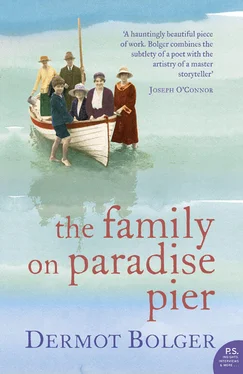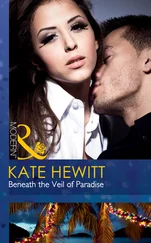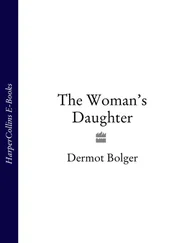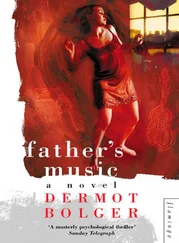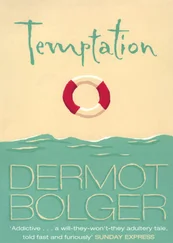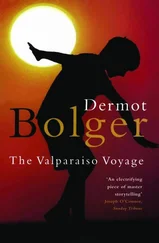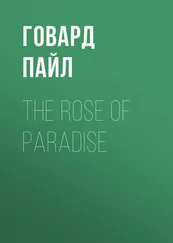The IRA and the communists were not natural allies but the persuasiveness of his argument was starting to gain converts. Art had previously agreed with the IRA leadership that Ireland stay neutral. However – since Hitler’s attack on Russia – Art had no option but to call on Ireland to join the fight against German fascism now that Comrade Stalin had strategically aligned himself with the imperialists. Blinded by misguided nationalist shibboleths and petty hatred of Britain, the camp leadership had grown scared of his speeches in recent weeks. But it was not about collaboration with Britain, it was about using the Allies as a vehicle to crush fascism before uniting behind Stalin to create a new world order. That was a greater prize than the steeples of Fermanagh.
This was the moment for all revolutionaries to unite and, while the IRA might find it hard to adjust, Art had shown how radical change was possible. It had not been easy. Christ only endured forty nights in the desert, but Art had spent two decades working on the docks, kipping in tenements and police cells. He had been his own judge, serving every day of his sentence with hard labour and was strong and cleansed of his former class now. But the confusing thing was that last night he dreamt about his family bathing off Ffrench’s private pier and had felt no guilt in re-experiencing that life of idle privilege. Instead he had known a sense of belonging, a dangerous wave of love all the more disturbing for emanating from those he was forced to repudiate.
Art left the hut, anxious to be on time for the few internees not intimidated away from his Russian language class. But soon he realised that two men were walking alongside him. He glanced at them as they pinned his arms. They belonged to the primitive Catholic element of Republican. He was strong enough to take them on but as they turned into a space between the huts he saw a deputation awaiting him. Taking a long knife from his pocket the camp IRA commander held it to Art’s throat.
‘You’ve been court-martialled, Goold, and sentenced in absentia. ’
‘You can’t court-martial me. I’m not a member of any Republican organisation.’
‘You’re a Protestant crackpot.’
‘I’m an atheist.’
‘Either way you go to hell. You’re just going there sooner than expected. I’ve had enough. We told the governor that unless you were gone by today you’d be found with a hundred knife wounds tomorrow morning. You’re his responsibility now.’
The men pinning back Art’s arms shoved him forward and he started walking. Then for some unknown reason, he remembered his brother Brendan in that dream last night, swimming alongside him, trying to keep up. Art stopped, not through fear but after being overcome by déjà vu and an inescapable guilt. He lifted his head, almost as if willing for retribution to finally come through a bullet or a knife.
Mrs Ffrench crossed the lawn from Bruckless House, and reached the gravel path that led to the small pier. Years ago on a picnic there when the Goold Verschoyle family argued about whether they should call it Bruckless Pier or Mr Ffrench’s Pier, Eva had insisted that it should really be christened Paradise Pier because that was what it was. But with the Goold Verschoyles gone, nobody called it Paradise Pier any more. Indeed no one ever came here, though locals knew that she never objected to people swimming there. But superstition was strong, despite everyone in Bruckless and Dunkineely being kind to her in her grief. Perhaps nothing summed up her husband’s failure more than their affection for him. He had seen himself as a radical orator, a progressive torch of truth amidst their fog of ignorance. But she realised that locals had just considered him a colourful eccentric – not even regarding him as Irish. Local priests had frequently railed against the Red Menace without bothering to mention her husband, despite his years of standing up on the running board of his Rolls-Royce at public meetings to heckle the speakers and beseech people to read the communist pamphlets that she had patiently held out.
Locally their crusade had been considered so laughable that it counted for nothing. The only converts they ever made came from their own class – those marvellous Goold Verschoyle boys. Not that class would count for anything after the revolution, but it still counted for something now. This was evident from the respectful way that people had carried her husband’s body home last month after he collapsed while bicycling to Killybegs to heckle de Valera at a political rally. She had warned him it was too far to cycle but petrol was impossible to obtain. Mrs Ffrench had laid him out in the study, with his maps and books and his tame birds that flew about, soiling everywhere, disturbed by all the visitors. For three days the most unlikely people came to pay their respects, farm labourers who had never previously set foot in the house. Any trouble he had caused with Art Goold Verschoyle was forgotten. But all the neighbourhood could whisper about was his funeral arrangements.
No one attended the interment but she had sensed eyes watching from across the inlet as four workmen laid her husband’s body in this sheltered corner of the garden beside the pier. In Donegal only unbaptised babies and suicides were buried on unconsecrated ground. But this had been Mrs Ffrench’s wish and where she would lie when her time came. There had been no prayers or speeches; just L’ Internationale played on the wind-up gramophone. Mrs Ffrench reached the headstone and knelt to lay wild flowers. The local stonemason had gone to his priest for advice before chiselling the stark inscription her husband chose as his epitaph: Thomas Roderick Ffrench: The Immortality of the Dead Exists Only in the Minds of the Living.
The silence outside the prison train was broken by indistinct sounds: the barking of released dogs, guards shouting in panic, a scramble of boots across the ground.
‘The bastards,’ an old zek muttered behind Brendan. ‘They’re more concerned with saving the dogs than saving us. Come back, you cowards, unlock these doors.’
The entire wagon was on its feet now, banging at the roof and wooden walls. Bursts of machine-gun fire came from above, interspersed with cries.
‘Aim well, Germans,’ a woman said. ‘Kill every guard.’
‘That’s who they want,’ a young man added. ‘I mean, why would the Germans want to destroy us?’
‘They don’t,’ replied the old zek. ‘We count for nothing. They want to destroy the carriages, this rolling stock.’
Noise of frantic hammering came from inside every wagon. Brendan heard the crush of timber and knew that one set of prisoners had broken free. Their shouts turned to screams amid a burst of gunfire, but he could not tell if the bullets came from the plane or if the guards might have set up their machine guns in the undergrowth. Two men beside him hammered at the roof, being lifted up by other prisoners. They broke away a wooden slat, yielding a dazzling glimpse of blue sky. Everyone was screaming now. But Brendan was utterly still, mesmerised by the blueness above him. It was the blue of an Irish summer and crossing that patch of light was a small aircraft, departing or wheeling around for another assault. It resembled a child’s plaything, a sparkling gleam in the bright air that made him catch his breath as it turned in a slow loop. Others saw it too and began to scream louder. But Brendan said nothing because he had become a boy again, standing on Bruckless Pier to draw in the bright kite that his eldest brother had made for him.
Eva looked up from her husband’s letter as Hazel waltzed out from the kitchen onto the lawn in her bare feet. The girl stirred a mixture in the jug she carried, then tossed back her hair to blow the first bubble skyward, laughing as it rose and burst. Francis briefly watched, then lay back with the dog beside him.
Читать дальше
